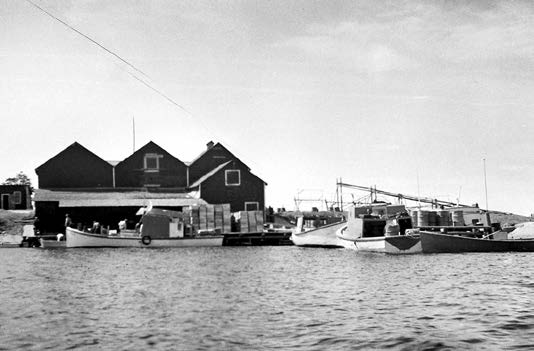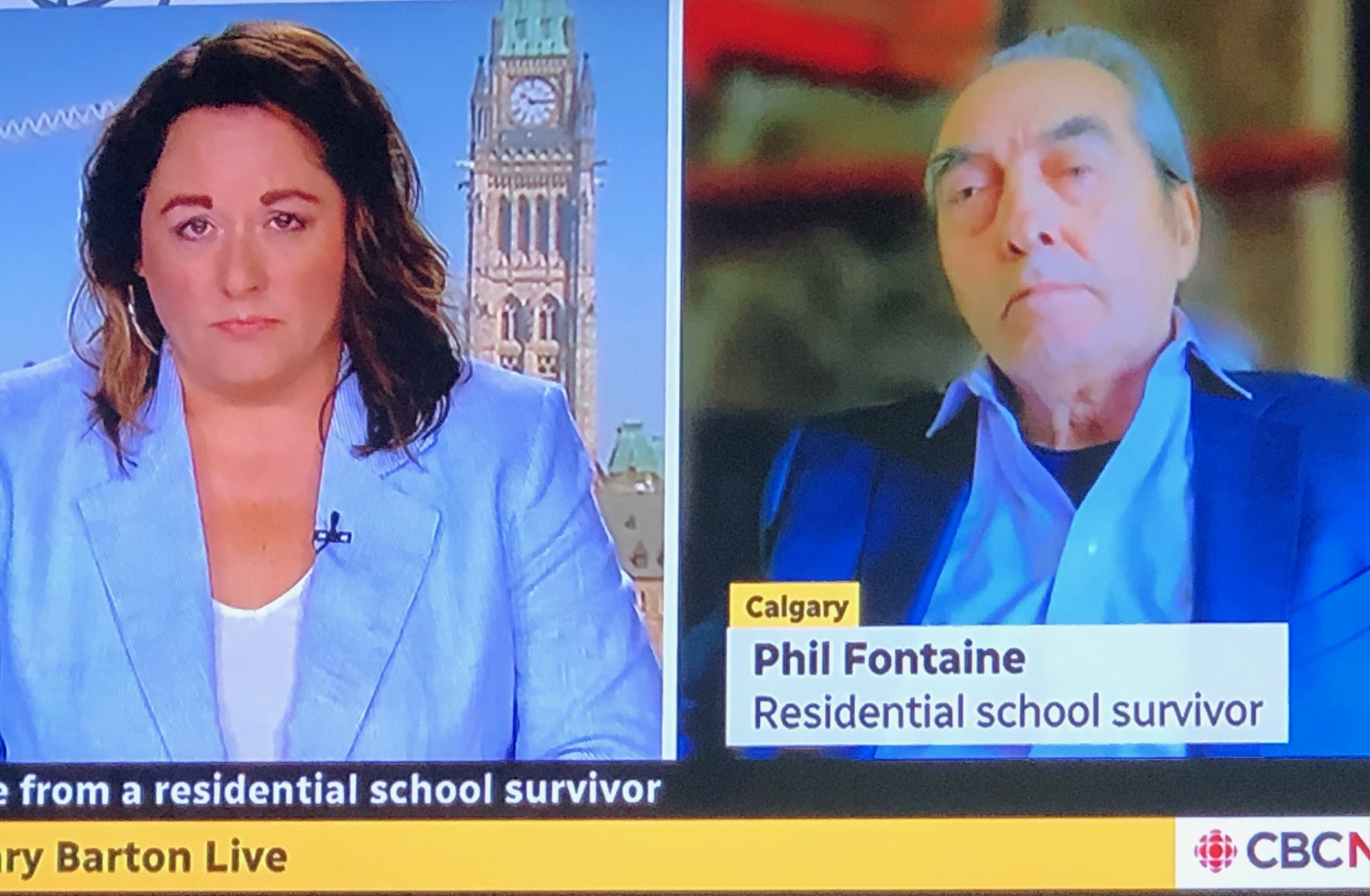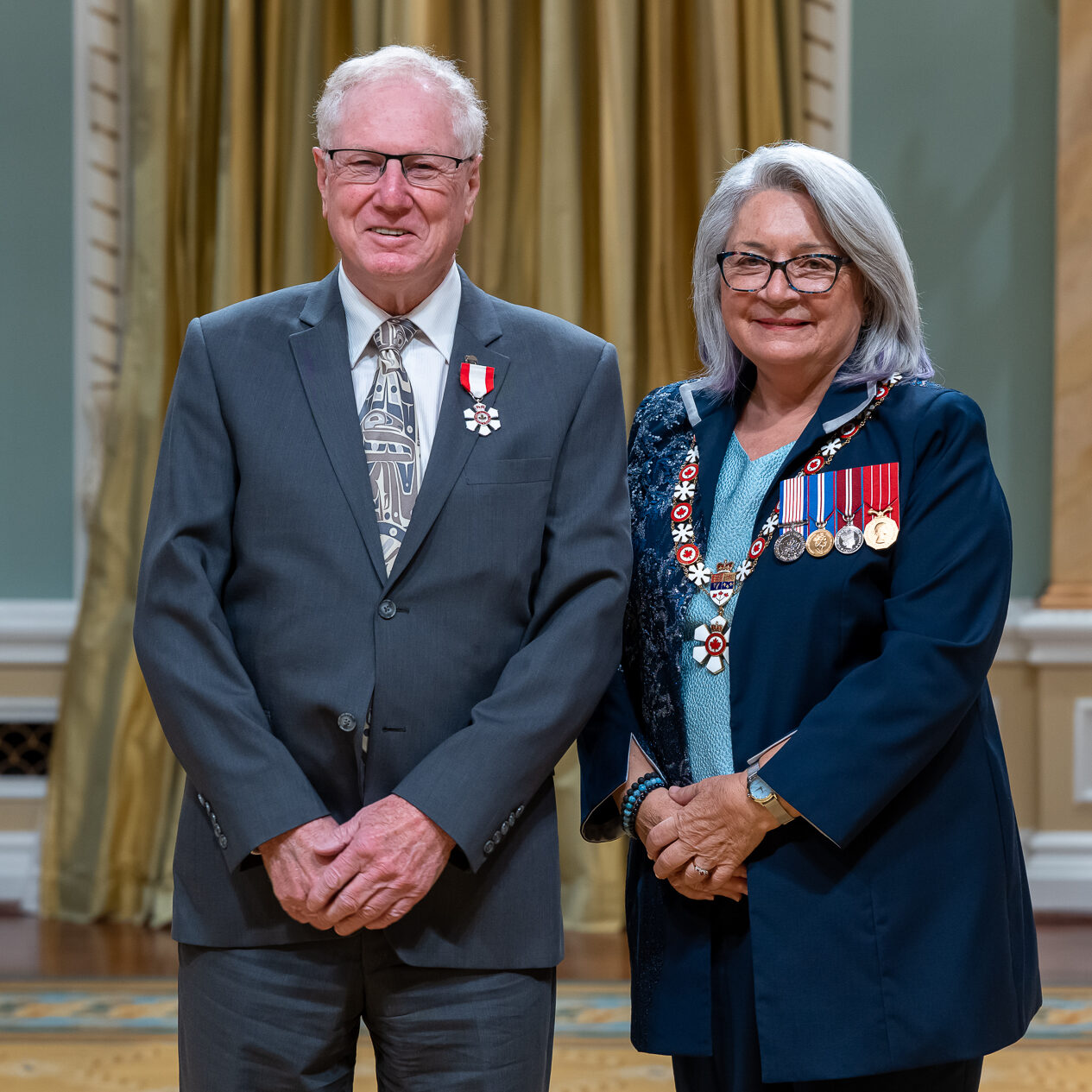
The Heartbeat of Reconciliation: “Your Dad and Auntie were such good friends”
March 19, 2018
The Exploratory Dialogues: Breaking First Trail for the Pathways and Principles of Reconciliation
June 12, 2021On November 27, 2020, shortly after I had received the press release announcing appointments to the Order of Canada, the telephone rang, and an excited voice boomed in my ear: “Glenn, it’s Reggie. I am so proud of you! Now there are two Orders of Canada from Riverton. Not bad for a little town in Manitoba.”
We talked for a few minutes about growing up in Riverton. Soon, the conversation turned to the Canada 150 celebrations that had been held in the community on July 1, 2017, capped by a major concert honouring the remarkable musical legacy of the community over many generations. Music has long been the voice of the community, its glue and its spirit. We had been invited to sell our recent memoirs: my Vikings on a Prairie Ocean and Reggie’s The Riverton Rifle. I reminded him about the picture we’d had taken together. “Send it to me,” he said. “I’m going to post it.”
No sooner had it appeared on Facebook than our mutual friend Rod Palson — Manitoba marketing wizard but first and foremost, energizer and impresario of all things music in Riverton — had pulled it off the Web, rolled in a new background, and added the endorsements you see in this picture. “I will always be proud of my small-town roots,” wrote Rod, “and particularly today, when yet another of my close friends receives the prestigious Order of Canada designation.”
Reggie, one of Canada’s hockey legends, one of Canada’s superstars set NHL scoring records with Philadelphia for many seasons, a winner of the Stanley Cup and the Conn Smythe Trophy In 2019 he was honoured for his contributions to hockey and his tireless work promoting the role of sport in the health of communities. Through the Shoot to Score hockey camps run by him and his son Jamie, who also had an NHL career, he has enriched the lives of many young boys and girls across small-town Canada. Reflecting on his Indigenous heritage, he has brought this experience into many northern Indigenous communities and delivered his own life experience-based wisdom as a sought-after motivational speaker.
I have long been a man in search of a title!- I have been described as everything from a mediator, negotiator, facilitator, coach, mentor lawyer, teacher, historian, writer “ – but probably the best and simplest description that combines a bit of everything into the mix is “ the man in the middle” helping others resolve deeply embedded differences, reach tough decisions, and build resilient relationships. My business is moving people from fighting to talking, most notably in complicated resource, environmental, and land use challenges, often involving Indigenous communities’ rights and interests. As I share in my memoir, it was the values, influences, and experiences I learned as a boy growing up in Riverton, in a prominent Lake Winnipeg Icelandic Canadian fishing family with a century of history on Lake Winnipeg, that shaped my life and career.
Reggie’s call that morning was a very special way to begin a very special day. I am deeply appreciative of all the kind words of congratulations I have received in the days following, especially for the insight it has given to me into the meaning of this appointment for me.
The award is, of course, a great honour, but an even greater honour is hearing from all the people who have reached out to me with kind messages, from a multitude of different places and settings over so many years. As my life intersected with theirs in various ways, their stories became part of my story, and mine became part of theirs. It feels like I have been given an opportunity to weave the tapestry of my life and career together in a remarkable way. Each message or call brings back a deep and distinctive memory. Each is a gift.
Reg’s call brought to mind where both our journeys had begun, in the small village eighty miles north of Winnipeg, along the shores of a “prairie ocean,” to which both of us have remained intensely loyal throughout our lives. In his memoir, he writes so warmly about the community and all that it has given to him, concluding the first chapter, “Riverton,” with: “More than fifty years later, it’s still a thrill for me to visit Riverton and be welcomed by the great people there, who have honoured me with a street, buildings, and signs in my name.”
I, too, write about “my Riverton” as a place where ”kids and dogs lived free, and that was the only way as far as I was concerned. Adults accepted kids for who and what they were. My mom put it simply: children are people too.” I pushed this declaration of rights to its limits, and I’ve taken this worldview with me everywhere I’ve been since then — and that’s a lot of places over a long time.
As boys, there was no greater glory than becoming part of the Riverton Lions Senior A hockey team, a history still very much alive through reunions and fundraising events, showcased on a Facebook page as the “Legacy of the Lions.” Lloyd Roche, the leader and soul of hockey in the community for decades, was quick to post there: “Two former Riverton Lions awarded the Order of Canada.”
Nothing epitomized Riverton better than the rink and the efforts to build it. “Now is the time. Let’s go, boys, it’s now or never,” someone shouted, and another, “There is no better time.” And so, in the late fall of 1949, the final push was made to complete the building of an indoor ice rink in Riverton, likely one of the first in Manitoba, and a remarkable achievement for what was then a small village of 700. It was the inspiration of Dr. Thompson, an iconic, beloved man who served the community and area for over fifty years. Building a better future for the youth of the community was top of his agenda. His close friend, my Afi (grandfather, in Icelandic), S.V. Sigurdson, was the mayor of the community at the time. During the opening celebration, he had this to say: “In Riverton, as in all towns of its size and economic conditions, a project such as this can be successful only when everyone in the community is behind the effort. It can truly be said that this is a successful community effort because every organization and every home in the community has in one way or another taken part in the work. The fundamental reason for such wonderful cooperation and success is the hope and faith that we are doing something worthwhile for the youth of our community, that good, clean sport builds better citizens for tomorrow.”
The rink was the centre of my universe for all my years in Riverton. I spent many hours there each night, practising and playing scrimmages, with games two or three times a week across the Interlake. It was everything. But the rink wasn’t just for hockey; figure skating was huge in Riverton, with a professional instructor who came from Winnipeg each weekend. Many girls became figure skating stars. And most of the young hockey players were also enrolled in the program, to bring their skating skills to the very highest level and to perform in the annual carnival.
For Reg, even that wasn’t enough ice time. He would sneak into the darkened rink late at night to practice incessantly, hitting the corners from the blue line, powering across the ice with the long, graceful stride that propelled him into the NHL as the third pick in the draft and onto the ice with the Boston Bruins.
With all this Riverton hockey energy, it should come as no surprise that it was our friend Rod whose creative mind conceived of the Whiteout for his client, the Winnipeg Jets. Debuting in 1987, now an icon for the energetic culture of hockey in Manitoba, thousands of fans in white -everything from simple t-shirts to fancy jerseys- flood into the arena and the streets around it passionately cheering for their heroes every time they reach the playoffs.
The Order of Canada is one of Canada’s highest civilian awards. It is humbling to be included with the more than 7,000 people who have received it since its creation in 1967. The website of the Governor-General says its inspiration was to recognize outstanding achievement, dedication to the community, and service to the nation, with the motto Desiderantes meliorem patriam, “They desire a better country.” I will do my best to live up to that expectation. In doing so, I have never, nor will, lose sight of the fact that I am, at heart, still a boy from Riverton, a community where what it takes to keep building a better Canada has long been recognized.
© (Stefan) Glenn Sigurdson C.M., Q.C.



